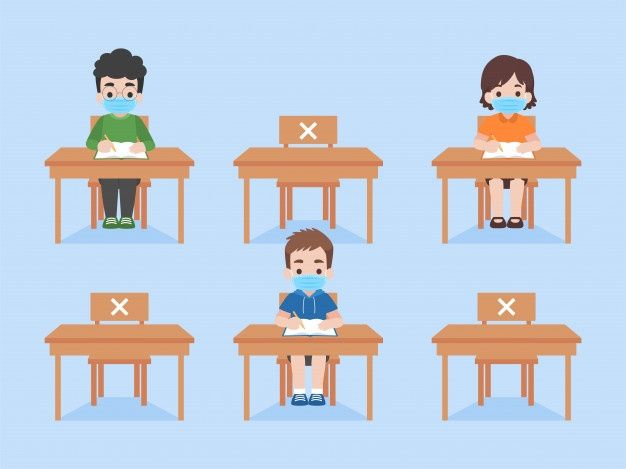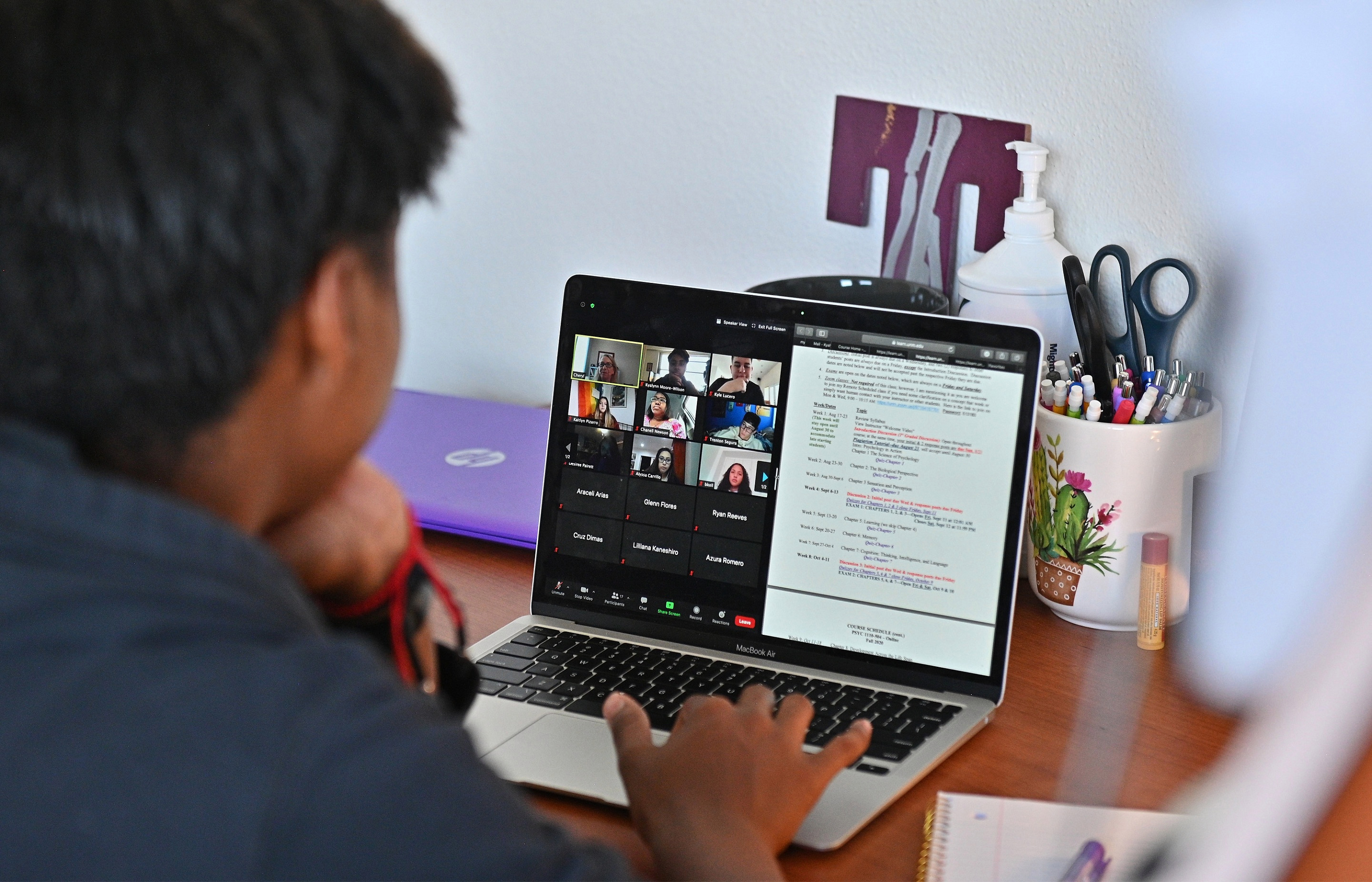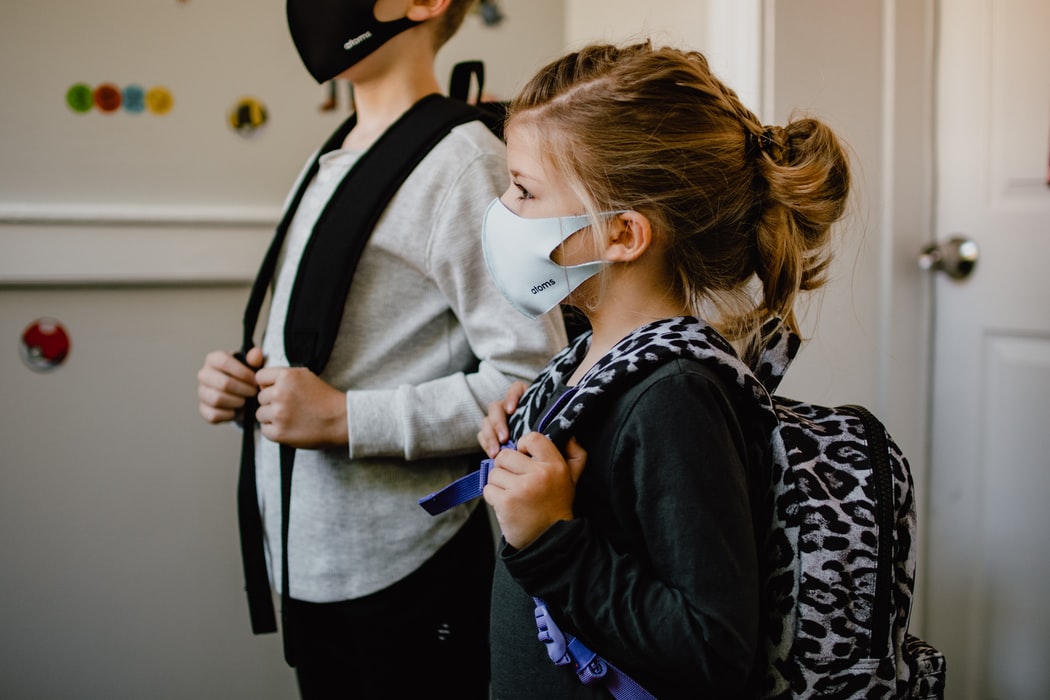
By Emily Lease, contributing writer
Photos from Unsplash and Marketplace
In March of 2020, Illinois decided to go on lockdown due to the Coronavirus pandemic. One of the first things that closed during lockdown was school. The impact of schools closing was, in some ways, catastrophic. Students were forced to learn in a whole new way that they were not used to, and they couldn’t see their friends unless it was on Zoom. Teachers were also stressed with this new medium due to many of them never teaching online before. In a lot of ways, everyone is frustrated—especially educators and student teachers, who are trying their hardest to make sure people’s children are safe and continuing their education in the middle of a pandemic.

Due to the pandemic forcing schools to close, many student teachers were stuck in limbo due to their inability to observe and teach for a while. Luckily, now students can observe and teach lessons via Zoom if the school allows them to. Marie Beyer, who is a music education major, has said that she “completes all of her observations virtually now.” She enjoys this and, in some ways, prefers it; she can observe teachers from different states and see different teaching styles. As previously mentioned, she is a music education major, so her classes right now are hybrid. Because of this, her music classes and ensembles are split into separate groups. This has brought some challenges, but Marie has been taking it like a champ.

Speaking of struggles, some students have been a bit unlucky when it comes to their experiences with the challenges Covid-19 has brought. Clarissa Argie who is an education major at the University of Colorado has been virtually learning since last spring. When asked what challenges she is facing, she responded, “I lost the motivation I had when I started college.” In this case, she is referring to her mental health and how virtual learning is not the preferred way for her to learn.
In a similar way, Anna Gualdoni, a history education major at McKendree University, has been having a hard time with online learning as well. Like Clarissa, she is a more in-person type of learner. So, her biggest challenge has been her online classes due to her procrastinating on assignments. In some ways, it is almost like an out-of-sight-out-of-mind type of thing. Anna also brought up the point that if she (a college student) is struggling, then younger kids must be struggling in some ways too. This makes a lot of sense, since many students and teachers did not have a lot of experience when virtual learning started.

Lastly, Clarissa also mentioned that she has “lost the motivation to become a teacher.” She brings up the point that students need devoted and properly educated teachers, but the salaries are just not that great. This is a very solid and understandable point that she has made. Many teachers are working ten times as hard now due to virtual/hybrid learning and are overdue for a pay raise.
Michaela Noblet, a full-time English teacher who graduated from McKendree University in the spring of 2019, said that she was “pretty prepared” when it came to switching to online learning. This was due to her school training her on how to create classes online. Talking to her further, she opened up about how she feels overall with this new way of teaching. So far, she likes virtual learning to an extent, but she would rather see her students in person instead of just on a screen. She also mentioned that her school is letting the students pick each quarter if they would rather go fully remote or fully in person. This seems like a smart idea compared to making them pick at the beginning of the semester and having them stick with that choice until the end of the term. Ms. Noblet also mentioned how her school is taking precautions, since they have some students learning in person. So far, they have required everyone to wear face masks, changed cleaning tactics, put up plexiglass, changed how the students eat lunch, and changed how students/teachers transition from class to class. In this case, that is the best that a school can do right now. When I asked her what she does to help cope during these stressful times, she said that “practicing self-care and professional development” has helped her a lot.
Emily Elyse, who is also a current teacher, was a bit apprehensive when she was first told that her school was going virtual when the pandemic first hit. This was due to the unknown amount of work it would be to convert all of her lessons into online ones. Emily doesn’t mind online learning, especially with Covid-19 still happening, but she does understand the frustrations that fellow teachers have since some are not very tech-savvy. In that case, she is happy to learn these new skills since she views it as having helped her become a better and more well-rounded educator. Like Ms. Noblet, she doesn’t mind online classes; she does prefer online, just not in the middle of a pandemic. When asked what she does to help cope with everything going on right now, she replied, “I am constantly reminding myself that I am doing the best I can and that’s all I can reasonably expect from myself, and also my students, at this time”.
This quote perfectly sums up a lot of what I have heard during my interviews for this piece. All of the teachers that I interviewed told me how much they care for their students and that just goes to show you that there are good teachers out there that will do whatever they can to help all children succeed. Even the majority of the education majors that I interviewed, as well, discussed how excited they are to help children, which is the best thing that you could ask for when it comes to your child’s education. During this past year, the education system has been faced with a lot of obstacles, but there are thousands of teachers out there that are helping children thrive in the best ways they can. The future is unknown, to say the least, but at least it is bright.
Good point, I do wonder what this paradigm shift in education is doing to future teachers. As a professor and father of two kids in remote learning, the hybrid and remote instruction is taxing. While I hope the shift is temporary, education, I am afraid (or hopeful?), will never be the same.